Planning a trip to Ireland on your own? Congratulations, you have made a very good decision, you will love Ireland!
Page Contents (click line to jump the text)
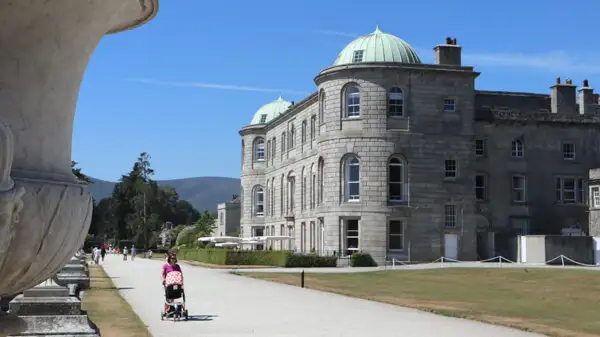
Intro
You already know when and how long you will be in Ireland, where you want to go and what you want to see – but what is still missing are the accommodations?
Then here are some tips for you on how to choose and book your accommodation.
By the way, we know this topic very well ourselves. On our own travels, we have booked many overnight stays in Ireland and used several booking platforms ourselves.
We come from Germany and have been living in Ireland (second home), for several years. We have travelled the island extensively and even had our own Airbnb accommodation business for a few years.
On your way to or from Dublin, you can stay with us if you like:
Tips and tools for booking accommodation for your trip to Ireland
1) Decide how far in advance you want to book
2) Plan realistic daily routes
3) Roughly choose the location or region for your overnight stay.
4) Choose your preferred location – city or rural
5) Choose your budget and comfort level – low, medium or high
6) Choose your accommodation format: hotel, B&B, hostel or castle/manor
7) Choose the services that are important to you
8) Search for suitable properties in Google Maps
9) Search for suitable objects in booking.com
10) Search for suitable objects in airbnb.com
11) Check the availability of your selected properties
12) Check reviews for available properties
13) Compare photos of your booking platform with Google Street View
14) Decide how / which platform you want to book with
15) Choose your preferred payment option and book your accommodation.
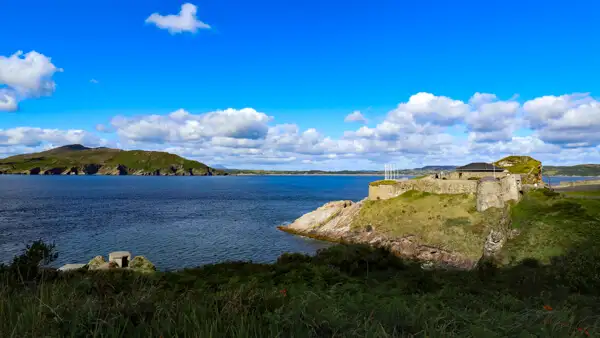
1) Decide how far in advance you want to book
Are there still uncertainties in your planning, or is everything clear? The flight is postponed, the Covid travel conditions change, a cold suddenly sets in, you want to stay longer than planned in a beautiful region, etc….
In any case, it’s good to have a little flexibility in your bookings just in case.
If you want to travel in the early or late season, i.e. from early April to mid-May, or from late August to October, you may not need to book too far in advance. Then good accommodation can be found only a few days before arrival, or even on the way.
From mid-May to the end of August, I recommend booking your accommodation in advance. During these months, hotels and B&Bs are well booked and it can be nerve-wracking and expensive if you are too late. But then it is important to look at the cancellation policy: If you can cancel for free up to a day or two before arrival, that’s a big advantage.
2) Plan realistic daily routes
Travelling in Ireland means driving a lot of small beautiful narrow and bumpy country roads. You will cover less distance than in other countries. 200-250 km is often a good guideline for a daily distance in Ireland.
If you do arrive at your hotel surprisingly early, you can always add a loop. However, if you plan too long a day and then realise at lunchtime that most of the route is still ahead of you, you will only stress yourself out unnecessarily during your holiday.
3) Roughly choose the place or region for your overnight stay.
Now you have roughly planned your route with realistic daily distances and, as a reward, the places where you will spend the night are almost self-evident. Usually you have several options from which you can pre-select a “wish list” of places.
To 4) Choose your preferred location – city or countryside
Do you want to rush into the nightlife of the city centre in the evening, or would you rather spend the night in peace and quiet in a small B&B on the mountain with a distant view of the sea? The wishes are different – it’s good if you already think about your priorities.
If you like a quiet stay, the city centre hotel in a larger city like Cork, Galway, Londonderry or Belfast might not be the best choice – but there are certainly nice places to stay on the outskirts or outside the city.
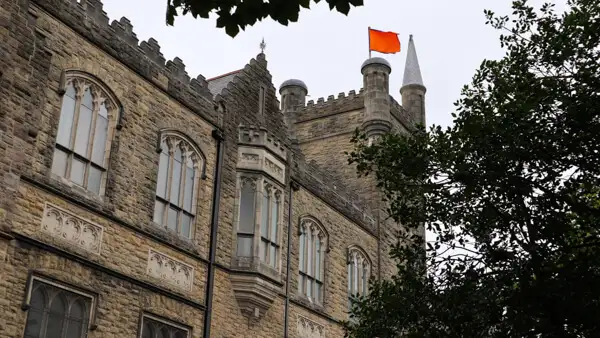
5) Choose your budget and comfort level – low, medium or high
When it comes to accommodation, Ireland is certainly not a cheap country. It is therefore all the more important that you set yourself an approximate budget for your bookings:
Overnight prices in high season per night with breakfast for one person:
Decent/good B&Bs are between 90-130€ in high season.
Decent hotels are around 120-140€.
Upscale hotels start at 140€.
Hostels and simple B&Bs can be booked much more cheaply, often with a significant reduction in comfort and facilities.
If you book without breakfast, you usually save €10-15 per night. Outside the cities it is cheaper and outside the high season it is significantly cheaper.
6) Choose the accommodation format: hotel, B&B, hostel or castle/manor
The classic form of accommodation in Ireland is the B&B. Especially in rural areas you will find very pretty little houses with only 4 or 5 guest rooms, often run by a charming older couple with a lot of dedication.
You will be warmly welcomed, get the best travel tips from the locals and be lovingly and abundantly cooked for breakfast in the morning.
You may not know exactly how to fit your motorbike luggage in your crowded room with at least 20 plush pillows, but you experience the most beautiful hospitality that you will remember for a long time.
The downside: You should arrive at “civil” times, never late at night. You might also want to confirm your booking by phone to make sure everything works out, and it’s best to have enough cash with you in case the card machine or Wi-Fi don’t work again today.
If you prefer a professional service and a reception desk that is available around the clock, then you’d better go to a good hotel.
And if money is no object, Ireland also has the most beautiful manor houses, castles and estates where you can stay in splendid luxury.
A tip for all “normal mortals” among us: Treat yourself to one or two really great accommodations and save your budget on other days with cheaper accommodation – it’s all in the mix!
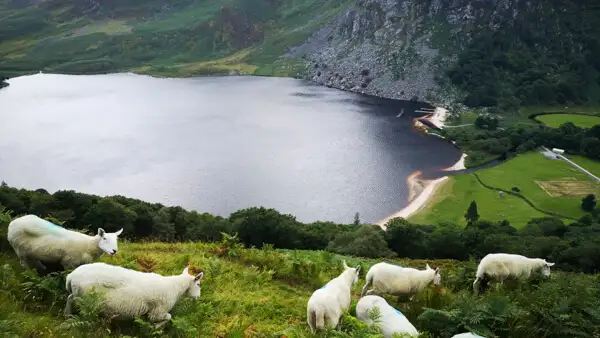
7) Choose the services that are important to you
In my opinion, the most important service is the possibility to cancel free of charge.
A bathroom ensuite is not always included in older B&Bs and small hotels, sometimes there is a bath or a separate bathroom in the corridor. So make sure you choose the right room.
Whether you need a TV, a minibar or a gym – write the things that are important to you on your wish list.
8) Search for eligible properties on Google Maps
At the end of a long day, in thick and possibly wet motorbike gear, you probably don’t feel like hiking with 4 pieces of luggage…? Neither do I, which is why I scrupulously make sure that the accommodation has parking spaces right by the house.
In the countryside that’s no problem, but in some city hotels the advertised underground car park turns out to be, first of all, an extra charge and then it’s two blocks away. How do you find out? Take a look at the aerial photos in Google Maps, where you can see parking spaces and the immediate vicinity of the hotel very well. Is there an industrial area, a railway line or a motorway right next door?
You can easily check this with the Google Maps satellite view.
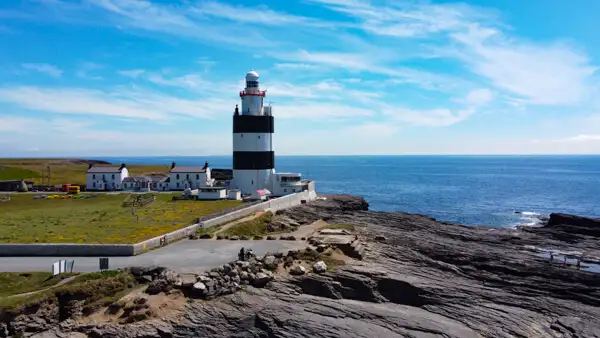
9) Search for suitable properties on booking.com
Booking.com is a platform that is extremely widespread in Ireland. It’s hard to get around and it works well. Search the pre-selected properties, look at the photos and get an idea of availability, facilities and prices. And read the cancellation rules!
10) Search for eligible properties on airbnb.com
An alternative to Booking.com is Airbnb. This platform is also very popular in Ireland.
11) Check the availability of your selected properties on your dates
Both platforms show you directly whether rooms are available in the selected hotels / B&Bs on your dates and at what prices.
But don’t give up immediately if there is no availability. Often the hotels do not give all their allotments to booking.com and if you book on the hotel homepage or call them, you can often still get a room.
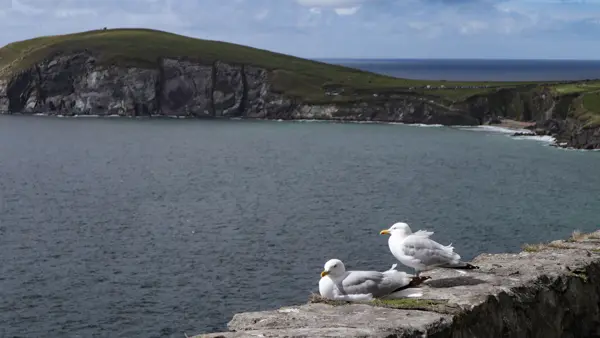
12) Check the ratings for available properties.
You can find reviews on booking platforms and, for example, on Tripadvisor or Google Maps. Be careful, the pure rating number (e.g. an 8.7 at booking.com) is not always meaningful. Also read some of the guest comments and get an idea if they suit you.
13) Compare photos of your booking platform and the hotel website with Google Street View
The internet is patient. The beautiful photos on the hotel website are 20 years old and in Google Street View or Google Maps photos it looks completely different – happens rarely, but can happen.
Just as the neighbouring railway line or the motorway can be found in the self-portrayal as a “convenient location” – just check Google Maps satellite view.
By the way: The mansion on the cover picture is not a hotel at all, but Mount Stewart House & Gardens in Northern Ireland – and it is beautiful to visit!
14) Decide how / with which platform you want to book
Everyone has their preferences and if you trust one platform more than another, then that’s right for you.
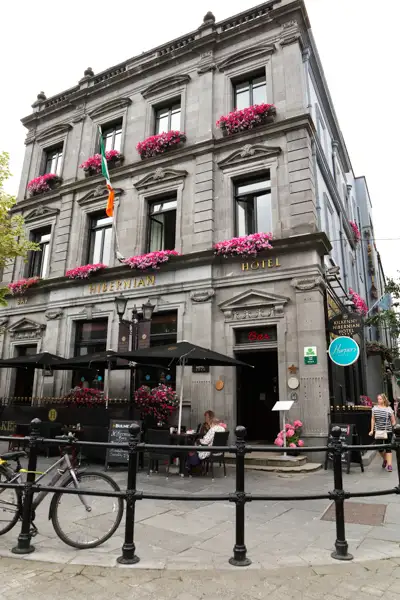
15) Choose your preferred payment option and book your accommodation
The payment options usually include the option to pay directly or to pay at the accommodation. With the direct payment option, the prices are usually better – but check what this means for the cancellation option.
There are usually several payment options, from Paypal to credit card and direct debit to Google Pay and Apple Pay. As a rule, the booking is secured via your credit card data, regardless of the payment method. If you don’t have a credit card yet, you should apply for one for your travels soon.
Conclusion
Yes, I admit it, this all sounds very complicated, but does it have to be? Don’t worry, it will soon become second nature to you and won’t take any longer than reading this text.
I’m not very interested in accommodation, hotels or B&Bs myself. The beautiful motorbike route is much more important to me and I prefer to plan it.
But a long motorbike day can also be exhausting. And afterwards, a good shower, a deep sleep and a good breakfast are exactly what you need to get back on the bike the next day refreshed and highly motivated.
Take some time to choose and book your accommodation, and you will enjoy your well-deserved holiday even more!
More interesting articles for you
LEFT-HAND TRAFFIC IN IRELAND – 15 THINGS YOU SHOULD KNOW FOR YOUR HOLIDAY TRIP!
CLIMATE AND TRAVEL WEATHER IN IRELAND – WHAT YOU SHOULD KNOW FOR YOUR HOLIDAY
WHY GO TO IRELAND OF ALL PLACES? – 9 GOOD REASONS FOR A TRIP TO IRELAND
ECO-TOURISM AND SUSTAINABLE TRAVEL – DISCOVER THE GREEN ISLAND SUSTAINABLY AND WITH CARE
Photo credits cover photo: The View Accommodation, photo by Ulrich Knüppel-Gertberg (www.irland-insider.de, www.ireland-insider.com)